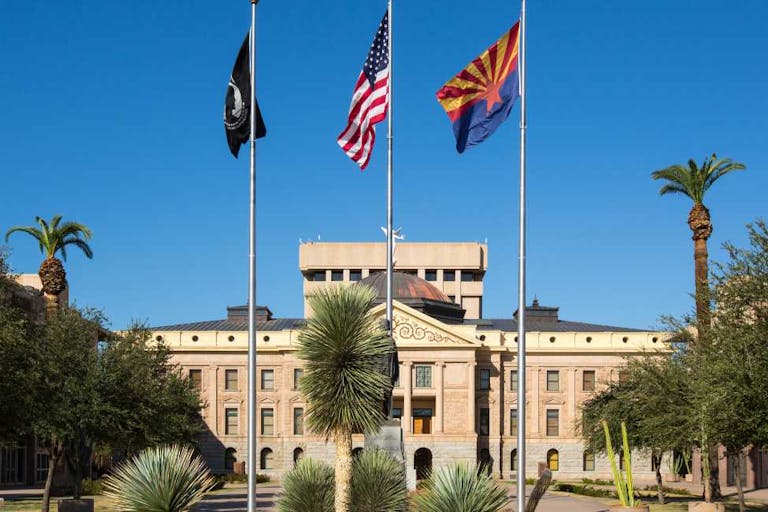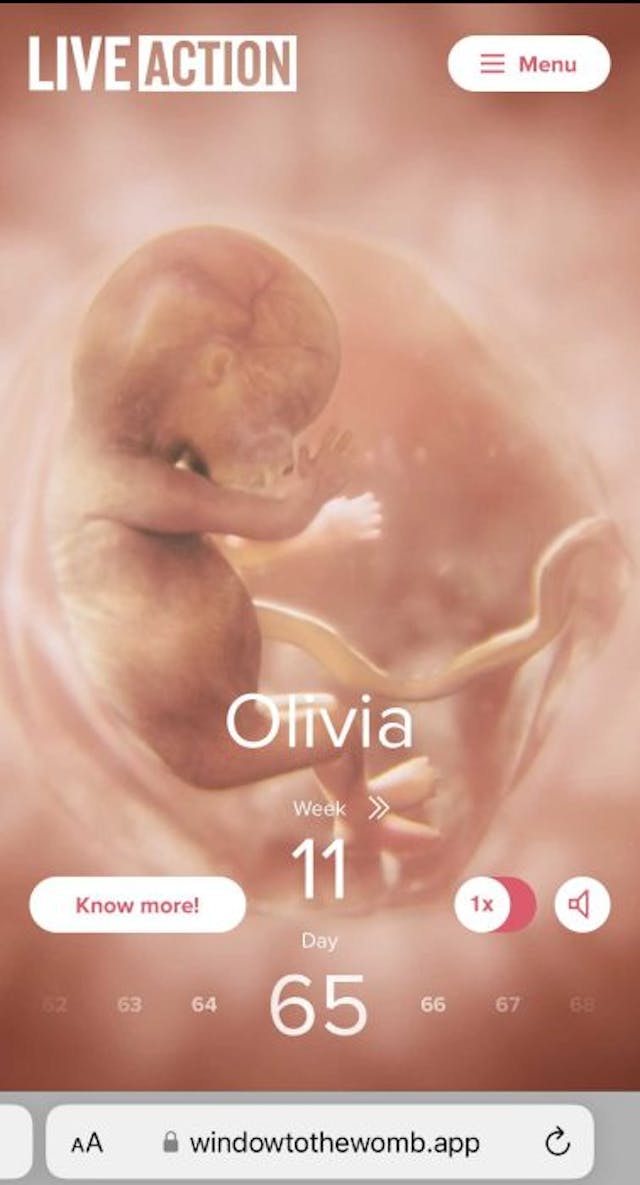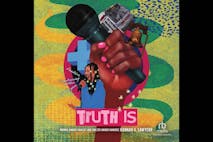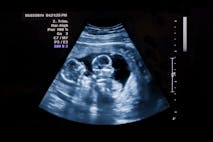
Report: Kansas abortions hit record high with 47% increase in minors
Nancy Flanders
·
Arizona judge strikes ‘unborn human being’ from abortion ballot pamphlet
UPDATE, 8/14/24: The Arizona Supreme Court has ruled that the informational pamphlet on a proposed pro-abortion amendment to the state Constitution can refer to a preborn baby as an “unborn human being.” However, the actual language on the ballot will remain unchanged, continuing to use the term “fetus.”
8/3/24: An informational voter pamphlet about the ballot initiative to expand abortion in Arizona will not use the phrase “unborn human being” after a judge rejected the language put forth by Republican lawmakers, deeming it too partisan and emotional. The case is now headed to the state Supreme Court.
Maricopa County Superior Court Judge Christopher Whitten asked that the pamphlet about the initiative, which seeks to expand abortion access from 15 weeks to 24 weeks, use more “neutral” language. Children born as young as 21 weeks have survived.
Earlier this year, Arizona for Abortion Access — a coalition of pro-abortion groups, including the ACLU of Arizona and Planned Parenthood of Arizona — announced that they had gathered enough signatures to put a pro-abortion measure on the ballot in November. If passed, the initiative would create a “fundamental right” in the state constitution to intentionally kill preborn children up to so-called viability, an arbitrary pregnancy marker since children are surviving at increasingly premature ages and are completely viable when left in the natural habitat of the womb.
Abortion would also be permitted for the remainder of pregnancy up to 40 weeks under exceptions for “the life or physical or mental health of the pregnant individual,” which is so broad that it allows abortion for virtually any reason.
READ: Iowa’s ‘heartbeat law’ is in effect, protecting most preborn children from abortion at 6 weeks
Opponents of the measure have argued that the ‘mental health’ exception could make it easy to kill a preborn child at any point in pregnancy based on how the mother is feeling, including if she is suffering from emotional stress, financial stress, or familial stress. This broad exception existed under Roe v. Wade‘s partner decision, Doe v. Bolton.
Republican lawmakers in Arizona issued the proposed language for the pamphlet that included the phrase “unborn human being,” which quickly led to a lawsuit from the abortion coalition. It claimed the word “fetus” should be used instead, and that “unborn human being” is too politically charged.
“Arizona voters have a right to clear, accurate and impartial information from the state before they are asked to vote on ballot initiatives,” the pro-abortion group said in a statement. “The decision of the Arizona Legislative Council fails to abide by that responsibility by rejecting the request to use the neutral, medical term ‘fetus’ in place of ‘unborn human being’ in the 2024 General Election Publicity Pamphlet.”
The judge agreed, ruling that the phrase is “packed with emotion and partisan meaning” — because it rightly identifies the humanity of the child in the womb — and that it needs to be rewritten with more “neutral” language.

The term fetus may be more neutral, but it also is simply a description for a specific stage of development within a human being’s life — the same as embryo, newborn, toddler, adolescent, or adult. Therefore, saying a fetus is a human being is not a partisan or emotional statement, but a fact, if the entity in the fetal stage is of the human species.
A new, distinct organism comes into being at fertilization. In that one moment, the preborn baby already has his or her individual, unique DNA, with genetic traits like sex, race, hair color, eye color, and more already determined, distinct from his or her mother and father. The child’s heart also begins beating just 22 days (about three weeks) after fertilization. Far from a meaningless electrical impulse, the heart — though not yet four-chambered — is already pumping blood throughout the baby’s body. By 11 weeks, preborn babies are exploring their environments; they can stretch, somersault, roll, and respond to touch. These are human beings, even if it is ‘politically incorrect’ to say so.

Arizona House Speaker Ben Toma, a co-chair of the legislative council, said the group is appealing the judge’s decision to the state Supreme Court.
State Supreme Court Justice Clint Bolick has since recused himself from the case, stating that his wife is on the legislative panel advocating for the use of the phrase “unborn human being” in the pamphlet. He will be replaced by retired Justice John Pelander on the case, which has been expedited to ensure it is resolved before the August 29 pamphlet printing deadline.
Editor’s Note, 8/14/24: This article has been updated to reflect that the language was in regarding to an informational voter pamphlet about the measure. The language on the ballot itself will remain unchanged. We have also replaced our original source link from the Associated Press, as it also originally contained erroneous language.
Live Action News is pro-life news and commentary from a pro-life perspective.
Contact editor@liveaction.org for questions, corrections, or if you are seeking permission to reprint any Live Action News content.
Guest Articles: To submit a guest article to Live Action News, email editor@liveaction.org with an attached Word document of 800-1000 words. Please also attach any photos relevant to your submission if applicable. If your submission is accepted for publication, you will be notified within three weeks. Guest articles are not compensated (see our Open License Agreement). Thank you for your interest in Live Action News!

Nancy Flanders
·
Politics
Nancy Flanders
·
Human Interest
Nancy Flanders
·
International
Angeline Tan
·
Human Interest
Isabella Childs
·
Human Interest
Bridget Sielicki
·
Pop Culture
Cassy Cooke
·
International
Cassy Cooke
·
Analysis
Cassy Cooke
·
Analysis
Cassy Cooke
·
International
Cassy Cooke
·